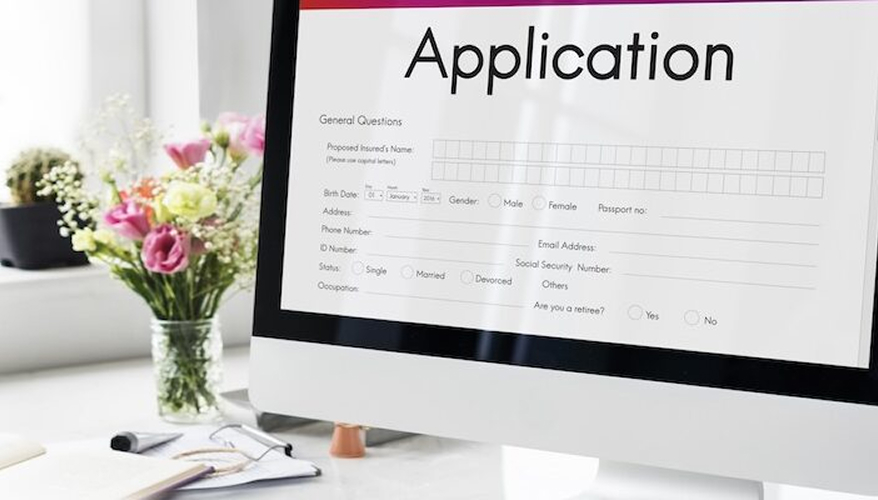Every year, at least 120,000 foreigners apply to become permanent residents in Singapore. Of this number, the Immigration and Checkpoints Authority (ICA) only approves about 30,000, representing a 25% approval rate. But, of course, the remaining 75% who are rejected will be disappointed and left wondering what could have gone wrong, especially if they have met the basic eligibility requirements.
Because of repeated rejections, some applicants have concluded that getting a Singapore Permanent Residence (PR) is only a matter of luck. According to them, if the officer reviewing your application wakes up on the right side of the bed, you will most likely get approved. Otherwise, you might become a part of the statistics of those denied a place.
But frankly speaking, this is not how the process works. ICA reviews all applications in their totality and, based on some written and unwritten criteria, determine those most suitable for approval.
What factors determine the direction the pendulum of your application swings? That is the question this article straightly answers. However, before revealing the seven factors that determine Singapore’s PR application, let’s review the basic eligibility requirements again for first-timers.
Eligibility Requirements For Singapore Permanent Residence Application
Before anyone can apply for a PR in Singapore, they must meet any of these requirements:
- Hold any of these work permits – EntrePass, Employment Pass, or S Pass – and have worked in Singapore for a minimum of six months.
- A spouse of a Singapore permanent resident or citizen
- An international student in Singapore
- Aged parent of a Singapore citizen
- A biological or legally adopted child of a citizen or permanent resident who is not older than 21 years
Factors that Influence the Outcome of a Singapore Permanent Residence Application
Now that you know the basics, here are seven factors that can influence the outcome of a Singapore PR application:
Economic Contributions To Singapore
While the written requirement is that applicants with work permits must have worked for six months, the reality is that this timeframe is never enough. Moreover, apart from international students and aged parents of citizens or PR holders, most applicants will have to demonstrate their economic relevance to the country – applicants who have worked for a year or more carry higher credibility for financial contributions.
The ICA considers people in the fast-growing ICT and health industries more economically valuable than others. Also, in addition to the length of work, stability and salary received from the employment matters. For example, someone with a job in a well-established company in Singapore paying SGD4,000 will receive approval ahead of another earning anything less.
In summary, applicants who have well-paying jobs in a well-established Singapore company and have worked for a year or more are considered economically valuable by ICA.
Character Referencing or Recommendations
Suppose a well-respected Singaporean technocrat, public figure, or government official writes a sincere, specific, and well-versed recommendation to support your Singapore permanent residence application. In that case, it will carry more weight when it goes before ICA. The implication is that you are an applicant with solid personal strengths, community and social impacts, and commendable work ethics.
How much weight a reference letter can carry in a PR application depends on the person or group writing it. It also depends on what the content says about the applicant. The more detailed, concise, and positive it reads, the better its effect on the success of a PR application.
Academic and Professional Qualifications
Going by the statistics on approved Singapore permanent residence applications over time, it’s apparent that the lowest acceptable qualification is post-secondary education — people with polytechnic, college, and university education form over 75% of those approved. Professional certificates also count, especially if they are relevant to the job of interest in Singapore. Ensure you submit all the documents required with a Singapore permanent residence application to improve your chances of getting a positive response.
Family Ties To Singapore
Applicants with relatives or family members who are citizens or PRs of Singapore are considered to have strong ties by the ICA. A solid connection to Singapore is a positive for a PR application because it tells ICA that such a person has a “pulling effect” to permanently stay and work in the country.
Applicants’ Age
There are divergent views as to the relevance of age to a Singapore permanent residence application. “Does it matter if I’m in my 30s or 60s?” The answer may depend on the year of application and the country’s current needs. For example, age may be an essential consideration if there is a labour deficit and the government feels the need to rejig its workforce. However, age doesn’t appear to contribute much to a PR application’s outcome if other factors are involved.
Nevertheless, as with most other countries, younger professionals stand a better chance than older ones. That is because they have more years to contribute to the country’s progress.
Family Profile
Family Scheme applicants already know about this because of the documents they must submit. For instance, people who apply under the family scheme must submit their marriage certificates, sponsor’s educational and employment details, and those of their dependents. In addition, since a PR approval for one person technically opens the way for their immediate family members, ICA also considers the profile of such family members.
For this reason, you can expect that the strength of your family members will also be the strength of your application. Therefore, even if you are applying under a different scheme (PTS or GIP), if your dependents are young and skilled, they may positively affect the outcome of your application.
Length Of Residency
Singapore wants to grant PR to applicants genuinely interested in living in the country and contributing to its economic growth. Therefore, the longer applicants have lived and worked in the country, the more evident their intention to stay is.
As mentioned earlier, six months is the official minimum when considering economic contributions. However, applicants who have lived here longer can better convince ICA officers that they have come to see and accept Singapore as their new home country.
Conclusion
Getting approval for a Singapore permanent residence can be challenging. There are quotas for this and several unwritten laws determining getting it. Nevertheless, if you package a tight application with the assistance of knowledgeable immigration agents, you can avoid going through the heartaches of multiple rejections.
Also, follow these simple yet effective tips for a successful Singapore PR application before submitting your application.






